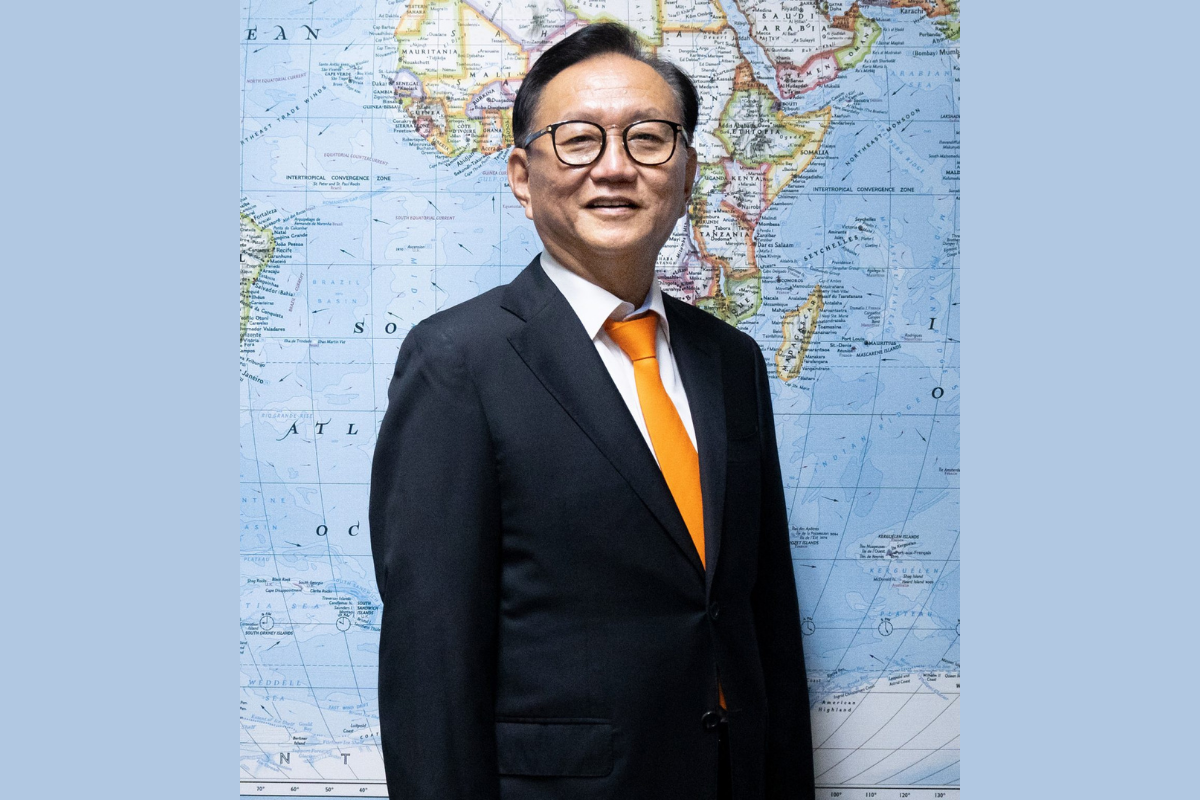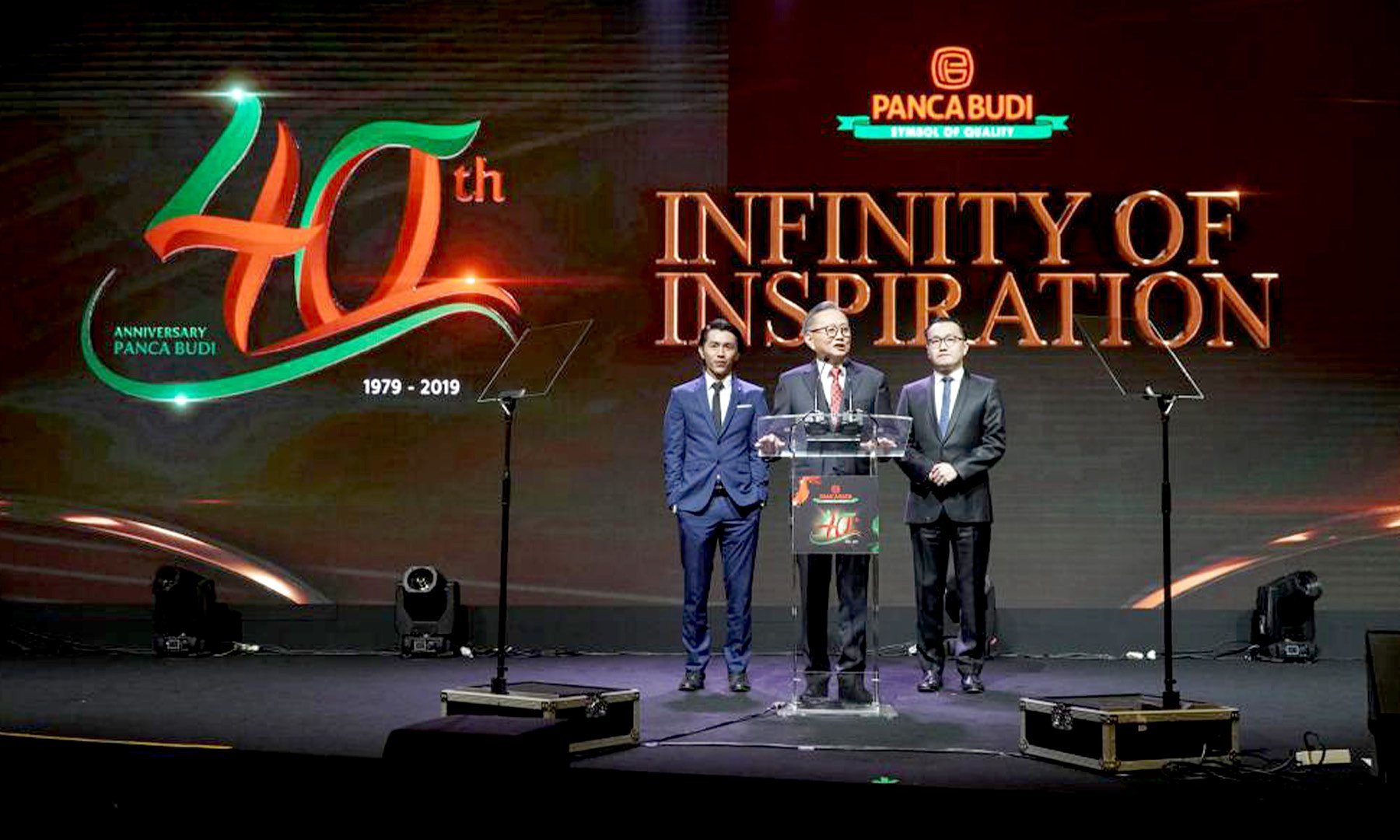In the bag: Djonny Taslim
Selling to Indonesia’s traditional market traders is lucrative, but it takes time to build the necessary personal connections. Panca Budi Idaman’s Founder and President Director Djonny Taslim has spent 43 years doing just that.
With a population of 270 million people, Indonesia prides itself on its diversity. But one constant in the South-East Asian nation of some 17,000 islands is its traditional markets, which are still centres of community, despite the proliferation of restaurant chains and supermarkets.

Taken as a whole, these markets offer enormous opportunity for entrepreneurs. That’s exactly what Djonny Taslim saw back in 1979, when he founded Panca Budi Idaman. The company manufactures and sells high-grade plastic bags for market traders and plastic food packaging for manufacturers, with its sprawling distribution network reaching all corners of the country as well as several international markets.
When it was founded, most plastic items in Indonesia were imported from Singapore. "It seemed to me there was a very good opportunity to start a plastic packaging business in Indonesia," he says.
That’s not to say it was easy to establish the wide reach the company has today. Ninety-five per cent of Panca Budi’s finished products are used in traditional markets – something that has required forging huge numbers of personal connections with independent traders and others.
"You have to have this togetherness, then the trust is always there," Djonny explains. "Due to the uniqueness and complexity of dealing with our customers all over Indonesia, the barrier of entry to our industry for multinational or even other local companies is much higher."

Due to the uniqueness and complexity of dealing with our customers all over Indonesia, the barrier of entry to our industry for multinational or even other local companies is much higher.
Competitors as partners
The plastic packaging market in Indonesia is so big and so complex that for Panca Budi, competition means something different than it does for other companies. "I always consider our competitors to be business partners," Djonny says.
"The market is so big, you just have to make friends with everyone: the customers, the competitors, the suppliers. The product line is huge, and the potential is huge. So actually, if you can do it together, you can make synergies in certain areas."
Maintaining good relationships with suppliers is intertwined with maintaining good customer relationships. By ensuring that the customer is never disappointed with the quality of the product, or with Panca Budi’s level of service, the company also ensures it can honour its commitment to its own suppliers.
Panca Budi has a 24-hour delivery guarantee so that customers can always be sure they will have enough bags, which can run out relatively quick amid surges of shoppers. "Because our product is fairly fast-moving, there will be a problem if supply is hindered there. It makes it difficult for them to sell things to their customers. So we always keep that commitment," Djonny shares.
I always consider our competitors to be business partners.
Another way the company maintains trust with customers, and ensures the long-term strength of those relationships, is by being supportive when their businesses are going through tough times. Fires are tragically common at markets, as are floods. So Panca Budi is always ready to be flexible with payment terms and contract conditions if a customer is affected by such a disaster.
"We keep supporting them so that they can get back on their feet," Djonny says. "We can do things like just reschedule their payments."
One key challenge the company faces is adapting to the global shift away from using disposable plastics – something the Indonesian government has indicated it wants to support more locally. Panca Budi has already started recycling operations in its factories where it uses waste from its own product cycles to make new products.
Because plastics that come into contact with food have to be of a certain quality, the company has yet to start making its products from things like recycled household waste. But Djonny reveals that there are talks underway with a reputable European company to supply Panca Budi with technology that enables the production of food-grade plastics from lower-grade sources.
Vital assets
For Djonny, Panca Budi’s people are its most vital asset. "Those people packing things at the factory level, dealing with the machinery day to day; they are key to the success of our company. I always appreciate the contributions of everybody," he says.
One way of showing that appreciation is to give employees the option of owning stock in the company, which floated on the Indonesia Stock Exchange about four years ago. After the start of the COVID-19 pandemic, it also offered daily snacks and tea to staff as a way of showing its thanks for their work.
While Panca Budi’s customers may technically be businesses, Djonny does not like to think of the trade he does as B2B. He feels the B2C model is far more relevant because of the company’s emphasis on delivering consistent quality at the point of sale.
It’s not easy to go and sell to all those small shops in the traditional markets. You have to know the person, and then you develop the relationship slowly.
"The B2B market in Indonesia is having problems with receiving and collection because the economy is not doing too well," Djonny reveals. "If you are selling to another factory, to the other B, the market is not too good. But we are always B2C. We sell to shops in the traditional market, direct to consumers, so collection for us is very good."
Underpinning that success is a distribution network that has been built over 43 years. "It’s not easy to go and sell to all those small shops in the traditional markets," Djonny says. "You have to know the person, and then you develop the relationship slowly."
Proudly supported by: